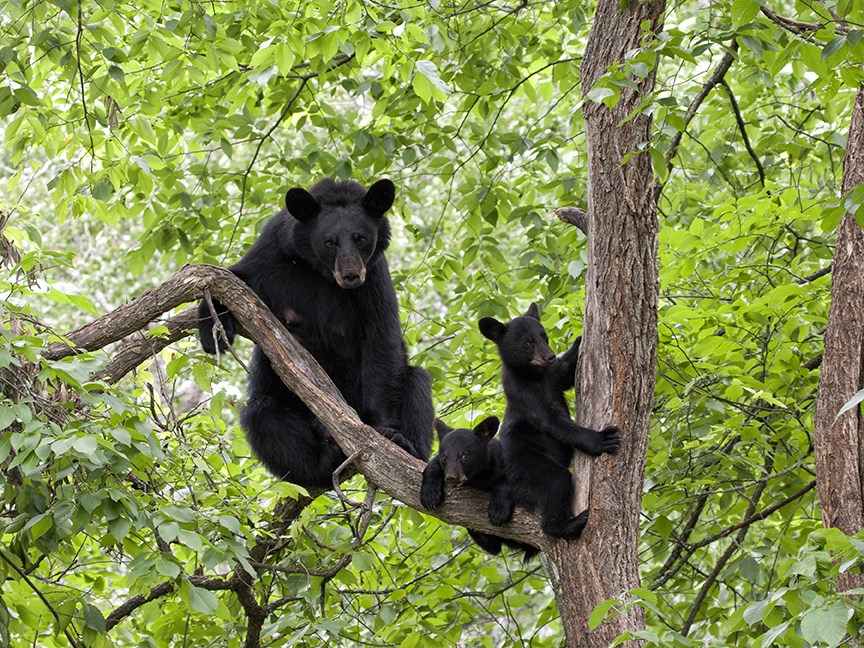Six Squamish bear cubs are headed back in the wild and conservationists want the public's help to keep them there.
The yearlings were captured last year by the Conservation Officer Service (COS), and transferred to Langley’s Critter Care Wildlife Society rehabilitation centre.
Three of the yearlings were successfully relocated on April 22 and the remaining will be set free soon, according to the District.
“This is a second chance for these bears, and also a second chance for us as a community to think about and change our behaviour so that we can do our part to prevent this cycle from happening again,” said Mayor Karen Elliott in a news release. “By putting extra care into managing attractants and encouraging wildlife to move through our neighbourhoods instead of giving them a reason to stay, we can ensure a positive outcome for all."
Trapping, rehabilitating, and relocating bears is only a temporary measure that is stressful for the animals, and requires many resources, the release continues.
“The most effective solution is for neighbourhoods to manage and remove attractants in the first place. Simple efforts will help to ensure this situation is not repeated this year, which is the outcome that we all want to see,” said Sgt. Simon Gravel with the Conservation Officer Service in the release.
The District offers four ways Squamish residents can help the bears:
* Keep totes locked and stored away. If your tote or lock has been broken or damaged, contact GFL for a repair at 604.892.5604 or squamishtotes@gflenv.com.
* Ensure a bear feels unwelcome if you encounter a bear on your property. From a safe area shout, yell, clap your hands or use an air horn to encourage the bear to move on. Having a neighbourhood bear is not a good thing.
* Reduce odours by freezing odorous food scraps and rinsing all recycling.
* Remove attractants on your property, including fruit from trees. Please harvest fruit and allow it to ripen indoors, prune trees to a manageable size and consider a temporary, portable electric fence to protect your harvest.
"Once a bear has become food-conditioned and human habituated, there are limited options for its management. A tragic outcome can be avoided if every person does their part,” reads the release.
If you have Wildlife Attractant Bylaw concerns, contact Bylaw Department at 604.815.5067 or bylaw@squamish.ca mailto:bylaw@squamish.ca.
For wildlife sightings or encounters, contact the 24/7 Conservation Officer Service hotline at 1.877.952.7277.




